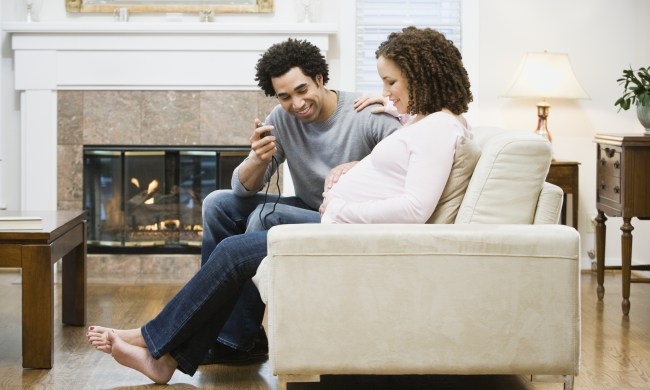You may not personally use TikTok, but chances are that you have seen at least a few viral videos that have come from users of the insanely popular social media app. You can create, post, and discover all sorts of content — cute mini dance snippets, funny lip-syncing montages, and much more. It’s fun, it’s engaging, and it’s catchy, but it’s certainly not harmless — so don’t hand your phone over to your tween just yet. All forms of social media have some potential pitfalls, and the dangers of TikTok are real; you’ll want to educate yourself and your child before participating in any online shenanigans.

Is TikTok safe for your tween?
These days, it seems like every kid has a phone with all the bells and whistles, plus every downloaded app at their fingertips. But the reality is: Children shouldn’t have unlimited access to social media. There are various mental and physical safety concerns to consider. Cammy Bowker, founder of Global Education Philanthropists, shared a few of the biggest drawbacks with NewFolks:
- Social media makes you vulnerable to predators: “All social-media platforms have the option to communicate with kids, and child predators spend time on the same apps as our children because they are the target,” Bowker said.
- Exposure to unsafe and dangerous content: As noted by Bowker, while there is plenty of wholesome content to be consumed, there is just as much featuring “oversexualized images and conversations.” You don’t want your child seeing or even emulating these things, or feeling confused by the mixed messages that come from social media. Moreover, trendy prank and “stunt” videos present real physical danger to young children excited to try these acts on their own at home.
- Social-media anxiety: Growing up is hard to do, and social media — including TikTok — can set the bar very high for kids and make them feel inadequate. You don’t want your child to thrive on likes, comments, and views — and you don’t want them subjected to online bullies or trolls who exist for the sole purpose of being anonymously mean.
How old do you have to be to use TikTok?
In accordance with children’s privacy laws, TikTok users must be 13-years-old to get their own account. This wasn’t always the case, though. In early 2019, the company had to pay $5.7 million to the Federal Trade Commission as a result of not instilling an age limit and allowing children under 13 to log into their app without a guardian’s knowledge or consent.
Of course, not all 13-year-olds are ready for TikTok. You have to decide if your child is emotionally mature enough to handle social media. Moreover, you should have ongoing conversations about social-media usage — it’s a privilege, not a right, to be on TikTok; your kiddo needs to be responsible, and you need to be actively involved.

Tips to Keep in mind if you let your child use TikTok
You don’t have to restrict access completely until your child graduates high school or flies the coop. Bowker said, “With proper education and open communication, once a child is a teenager, it may be possible for them to responsibly use social media.”
She elaborated, “The problem is, I rarely see proper monitoring, education, and communication. Instead, cell phones are just handed to kids without any discussion on the dangers of the device and platforms that are accessible.”
With that in mind, here are some steps Bowker suggests taking to protect your child:
- Stay involved: “Parents need to be aware of what type of videos their children are posting, and what message they are sending with their TikTok posts,” Bowker said.
- Lead by example: “Look at [your] own interactions/posts on TikTok and other platforms. If parents are using social media to be a sex symbol, how can they expect their children not to permit sexual behaviors online?” Bowker said.
- Use parental controls: TikTok has recently launched its own internal parental-control features that give caregivers remote access to restrict a child’s account. The Family Pairing ability links a parent’s account to a child’s, so adults can restrict direct message access, set usage time limits, and more.
- Try outside monitoring systems: Caregivers can also use a monitoring system to get better insight into their child’s social media usage. Bowker recommends the Bark app or a filtering program such as The CleanerNet. Still, she is clear that software isn’t a substitute for your proactive involvement: “The bottom line is that parents still have to remember it’s their responsibility to teach their children.”
- Consent with consideration: Remember, privacy and social-media footprint are not only issues for tweens and teens; they’re a concern for all users — so do your due diligence and interact with the app yourself before consenting on behalf of your child.
Without a doubt, playing on TikTok can be awesome. It can even be considered a creative outlet for tweens. But if you’re asking yourself: Is TikTok safe for an 11-year-old (or whatever age your child is), take a step back and evaluate your kiddo’s personality, maturity level, and digital usage. Social media is a double-edged sword, and you need to make sure they’re ready. It’s not all fun, games, and lip-sync videos, after all.


